Iron ore prices have fallen 30 per cent this month, and on Wednesday tumbled to their lowest levels since March, after miner BHP warned that benchmark prices were likely to be lower over the next year.
The benchmark price for iron ore from Australia to China dropped by $5.5 a tonne on Wednesday to hit $83, according to S&P Global Platts.
Prices for the steelmaking ingredient have tumbled from a five-year high of more than $120 a tonne in July as concerns have grown over demand for steel in China following a surge in production in the first half of the year.
Supplies of iron ore have also stabilised after disruptions earlier this year following the collapse of a dam in Brazil at a mine run by mining group Vale. In March a cyclone also hit Western Australia, further affecting shipments.
“Headwinds to Chinese demand are growing, with industrial output growth the weakest since 2002 and infrastructure investment growth weakening,” analysts at Numis wrote in a note. “Iron ore inventories are rising and mills’ profit margins are under pressure as falling steel prices wipe out the benefit of the drop in raw material costs.”
On Tuesday BHP, the world’s largest miner, which generates most of its earnings from iron ore, said it expected average benchmark prices would be lower over the next year, though they will probably remain above the company’s long-run marginal cost of production.
BHP said on Tuesday it earned $11.1bn from selling iron ore in the year ending in June, compared with $8.9bn a year earlier. It aims to produce between 273m to 286m tonnes of ore over the next year, from 270m tonnes in the last financial year, it said.
But the Melbourne-based company warned there could be “considerable volatility in pricing” as the market continued to adjust to disruption in supplies after the deadly accident in Brazil.
“We expect supply conditions will return to a more normal path on a one to three-year timeframe, and prices are likely to be volatile as that adjustment plays out,” BHP said.
Shares in the company slipped 1 per cent on Wednesday to trade at £17.14. They have fallen by about 14 per cent this month amid concerns of a growth slowdown around the world.
Steel mills in China are running down their stocks of iron ore rather than buying on the seaborne market as they remain bearish on the outlook for steel demand, said Niki Wang, head of iron ore pricing at S&P Global Platts.
Environmental controls were expected to be stricter ahead of the 70th anniversary of the People’s Republic of China on October 1, she said, which would limit steel output.
“Although the steel margins inched up from July, buying interest on seaborne iron ore remained lacklustre,” Ms Wang said.
Fonte: Financial Times





